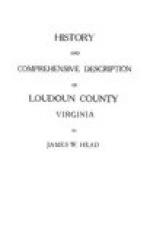Such was the state of feeling in the first stage, before there was any general understanding of the nature of the questions to be solved or of the conflicting policies. News from the outside world filtered through slowly; while the whole County lay prostrate, breathless, exhausted, resting. Little interest was evinced in public questions; the long strain had been removed, and the future was a problem too bewildering even to be considered yet awhile. The people settled down into a lethargy, seemingly indifferent to the events that were crowding one upon another, and exhibiting little interest in government and politics.
There was a woeful lack of good money in the County and industry was paralyzed. The gold and silver that remained was carefully hoarded, and for months none was in circulation except in the towns. The people had no faith in paper money of any description and thought that greenbacks would become worthless in the same way as had Confederate currency. All sense of values had been lost, which fact may account for the fabulous and fictitious prices obtaining in the South for several years after the war, and the liberality of appropriations of the first legislatures following the surrender.
With many persons there was an almost maddening desire for the things to which they had once been accustomed, the traders and speculators now placing them in tempting array in the long-empty store window.
People owning hundreds of acres of land often were as destitute as the poorest negro. The majority of those having money to invest had bought Confederate securities as a patriotic duty, and in this way much of the specie had been drawn from the County.
Nearly all the grist-mills and manufacturing establishments had been destroyed, mill-dams cut, ponds drained, and railroad depots, bridges, and trestles burned. All farm animals near the track of the armies had been carried away or killed by the soldiers, or seized after the occupation by the troops. Horses, mules, cows, and other domestic animals had almost disappeared except in the secluded districts. Many farmers had to plough with oxen. Farm buildings had been dismantled or burned, houses ruined, fences destroyed, corn, meat, and other food products taken.
In the larger towns, where something had been saved from the wreck of war, the looting by Federal soldiers was shameful. Pianos, curios, pictures, curtains, and other household effects were shipped North by the Federal officers during the early days of the occupation. Gold and silver plate and jewelry were confiscated by the “bummers” who were with every command. Abuses of this kind became so flagrant that the Northern papers condemned the conduct of the soldiers, and several ministers, among them Henry Ward Beecher, rebuked the practice from the pulpit.
The best soldiers of the Federal army had demanded their discharge as soon as fighting was over, and had immediately left for their homes. Those who remained in the service in the State were, with few exceptions, very disorderly and kept the people in terror by their robberies and outrages.




